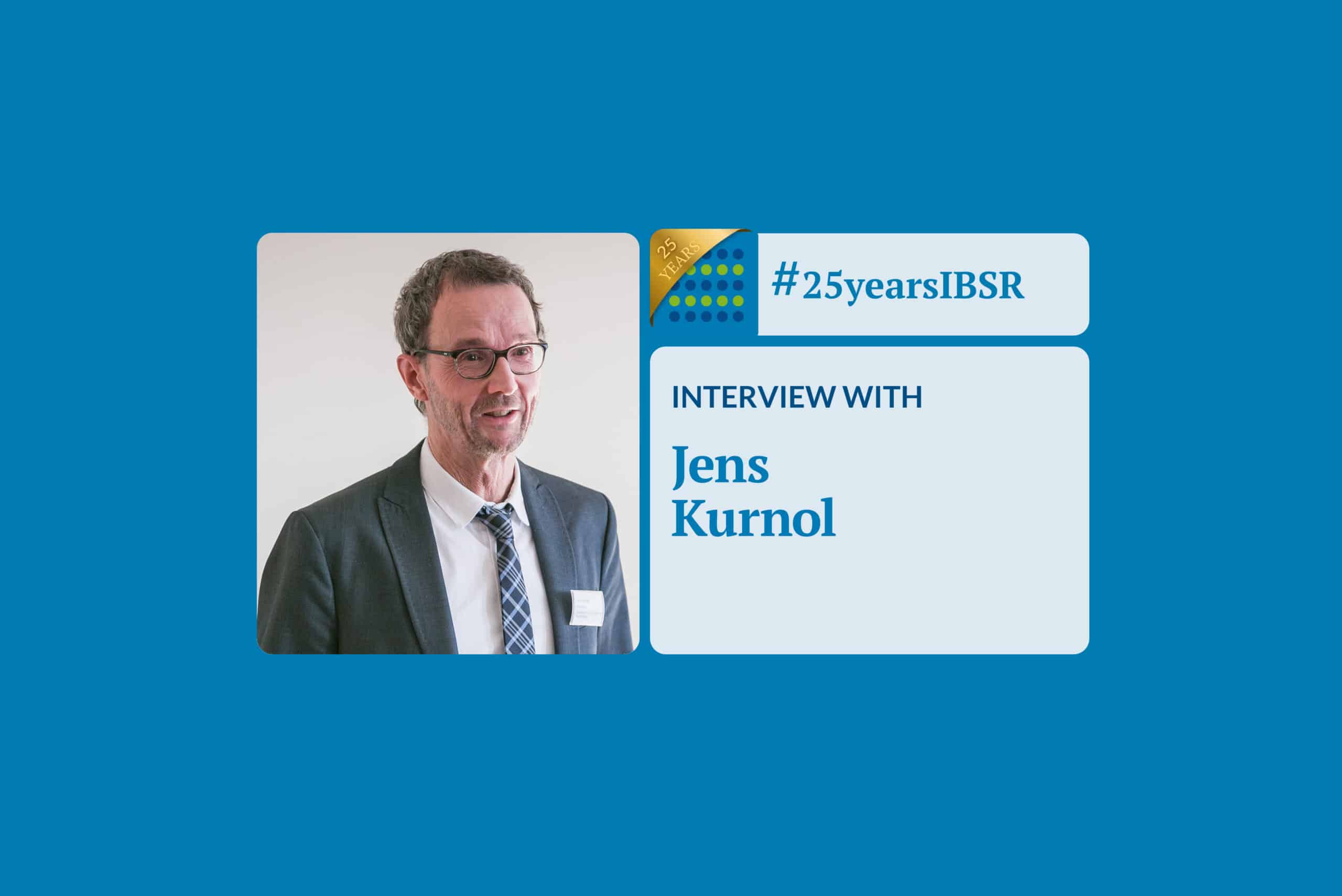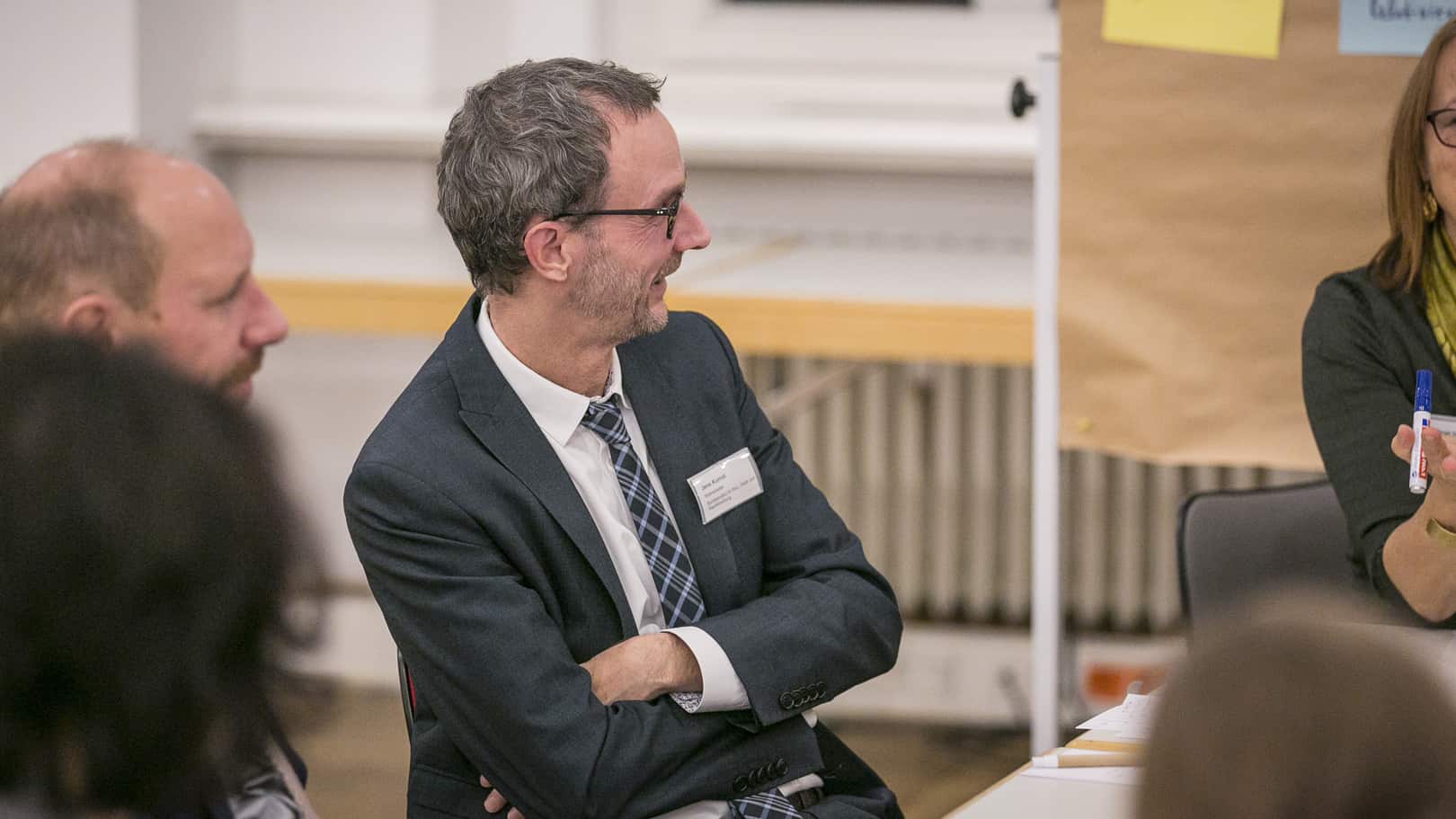
19 April 2023
Interreg: it is done nowhere else like this
#25yearsIBSR
Anna Gałyga: When did you start working for the Programme?
It’s not only the 25th anniversary of Interreg Baltic Sea Region but also my 25th anniversary with Interreg cooperation in general. I started working with the CADSES (Central European, Adriatic, Danubian and South-Eastern European) Co-operation Space programme already in 1998. It’s a precursor of to-date Danube and Central Europe Interreg programmes. Then I worked at the Interreg North Sea Programme secretariat for a couple of years. And then around 2014, I joined Interreg Baltic Sea. I took over the tasks from Wilfried Görmar (note: former Monitoring Committee member), our Mr Baltic Sea, who had been involved in the Baltic Sea region cooperation since mid-90s.
What are your oldest memories related to the Programme?
My oldest memories related to Interreg Baltic Sea Region are also my best ones. They are related to Wilfried Görmar who had always been so engaged, so happy, so excited about the Baltic Sea region cooperation. He was spreading this spirit every time he came back from the Programme or project meetings. For some reason, these Northern transnational cooperation programmes have a really strong cooperation spirit. It might have something to do with the Baltic Sea and the shared history.
And when I joined Interreg Baltic Sea Region, I met so many enthusiastic people and experienced so many exciting events that it’s difficult to pick just one. Perhaps I would mention the Programme Conference in 2014 organised at the Museum of the History of Polish Jews in Warsaw, a special place considering my German background and a great event in itself.
What benefits has Interreg Baltic Sea Region brought to the German regions involved in the Programme?
The most important is Interreg Baltic Sea Region support to the completely new sector: maritime spatial planning. Even though countries from 2014 on were obliged to develop their plans, the Programme – via the BaltSeaPlan project – gave an absolutely crucial push forward. It enabled the Member States to exchange and develop their maritime spatial plans. Without Interreg, it would probably have taken us ten more years. And after all those years, I still have a comic booklet created by BaltSeaPlan on “How to become a maritime spatialist in 10 min”. Even today, it’s still valuable and I show it to everyone who wants to learn about maritime spatial planning.
Another example of a tangible Interreg result, this time with clear economic benefits, is the European Route of Brick Gothic project from early 2000s. It developed a touristic route along the coast of the Baltic Sea to connect towns in Germany, Denmark and Poland that are rich in Brick Gothic buildings. As a result of the project, the towns set up an association that is still alive till today and financed by membership fees. The cities considered to be valuable of this tourism marketing platform; other cities joined the association, too.
The transport corridor projects were also very beneficial for us, especially the Scandria projects. This cooperation also evolved into a long-lasting association. If you look at the transport corridors examples also in other parts of Europe, they were also kicked off by Interreg.
We also had some good local and regional energy projects, for example URB.Energy, Area 21 or BEA-APP. The knowledge gained in these projects on neighbourhood energy concepts helps a lot in the accelerated transition from fossil fuels.

What wouldn’t be possible without Interreg?
If we take transport as an example, I think there wouldn’t be cooperation among the regions along the corridors. The development of transport corridors would be more related to long-distance transport instead, reflecting more the point of view of capitals. Involving the regions, like we do in Interreg, gives another perspective to these transnational EU networks, it’s not only getting from point A to B, it’s about bringing whole regions onboard.
What associations do you have with Interreg?
My first association is cooperation spirit; this is something that has always fascinated me, especially when I meet with project partners. The same goes to the Member States: it’s incredible to see what’s possible when people agree on joint actions.
Another association that I have is joint management of funds. It is one of the ideas behind setting up transnational programmes in the old days. Several Member States agree on joint perspectives and allocate EU funds together: it is done nowhere else like this. In this sense, we are in between funds centrally managed by EU agencies, like LIFE or Horizon, and nationally or regionally managed programmes. And although it may be sometimes challenging, because of our special role, I am rather optimistic about the future of this kind of transnational cooperation programmes.
In this optimistic context, what would you wish to the Programme for the next years to come?
Make sure that we remember our roots: it’s about cooperation, not competition. It is about our project people and how we bring them together across national and linguistic borders, not about being the most modern or innovative programme. And let’s not copy other programmes either: we should stick to our bottom up principle, joint decision making and a clear territorial approach. And let’s be more inclusive. When I look at applications, we always have big cities as winners. I think it’s important to also involve people and organisations that are not the obvious participants of this kind of cooperation. With our small projects, I’d say we are on the right track.esse
#25yearsIBSR
This year, our Interreg Baltic Sea Region Programme is celebrating its 25th anniversary. For more examples of #MadeWithIBSR project results and testimonials of great people who have helped shape the regions with us, visit our birthday celebrations page!
More recent news
Grand results of the first round of small projects!
Despite the winter scenery, the results of 17 finalised Interreg Baltic Sea Region projects are in full bloom! And behind them lie two years of intensive work across borders, mutual learning and inspiration, and connections that last.
Climate-neutral future at hand for Baltic Sea region cities
Turning a city into a climate-neutral one requires knowledgeable people, thorough planning and solid financial resources. But how can cities manage this transition smoothly? The Interreg project Climate-4-Case guides cities around the Baltic Sea on how to do that right.
Designing Interreg Baltic Sea Region that belongs to everyone
10 December 2025 Designing Interreg Baltic Sea Region that belongs to everyone Written by Eeva Rantama What if the next Interreg Baltic Sea Region...
Monitoring the Programme’s progress: transnational cooperation in the making
Representatives from nine Programme area countries gathered in Berlin on 19-20 November 2025 to review the progress of the Programme’s implementation and start preparing for the post-2027 period.






